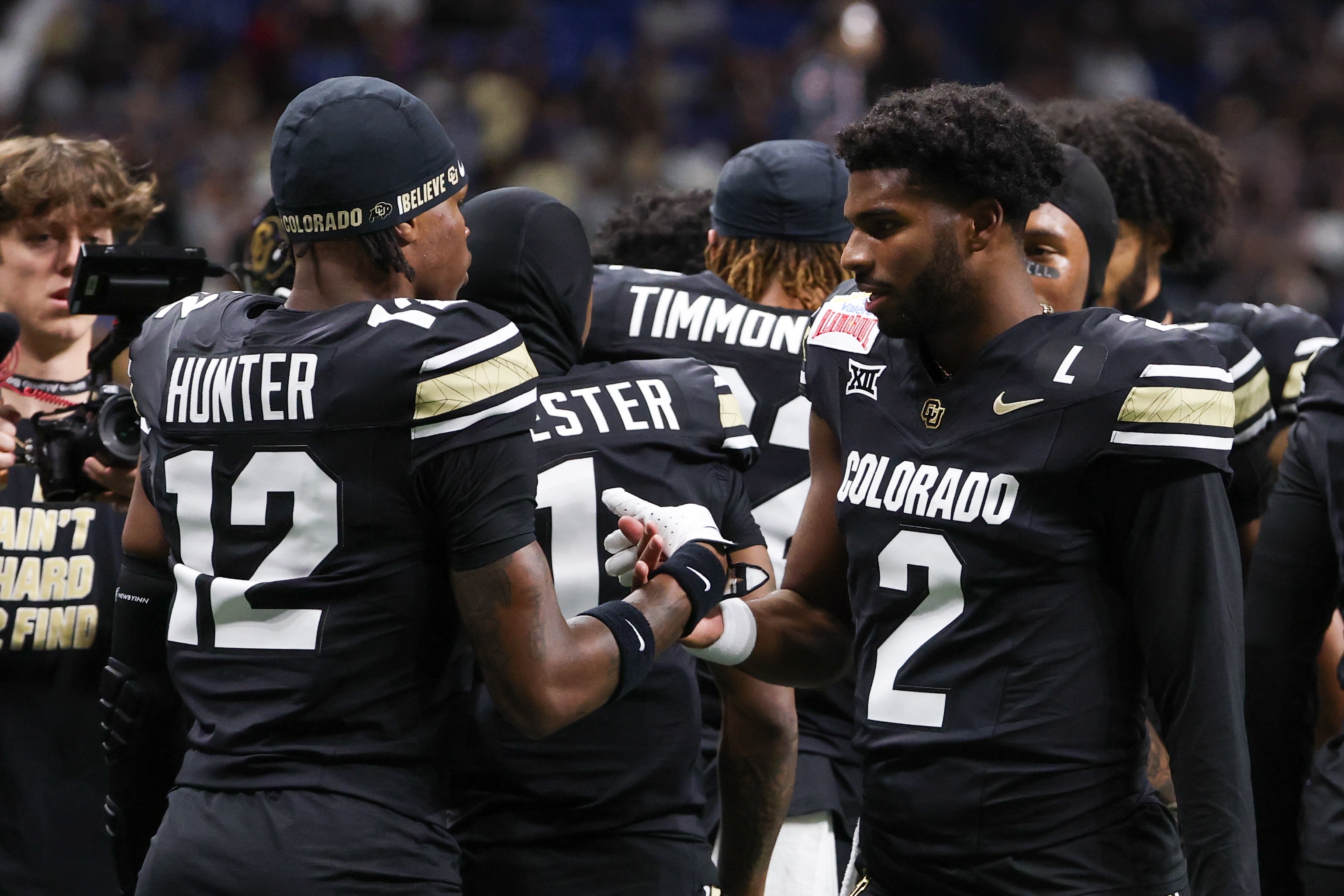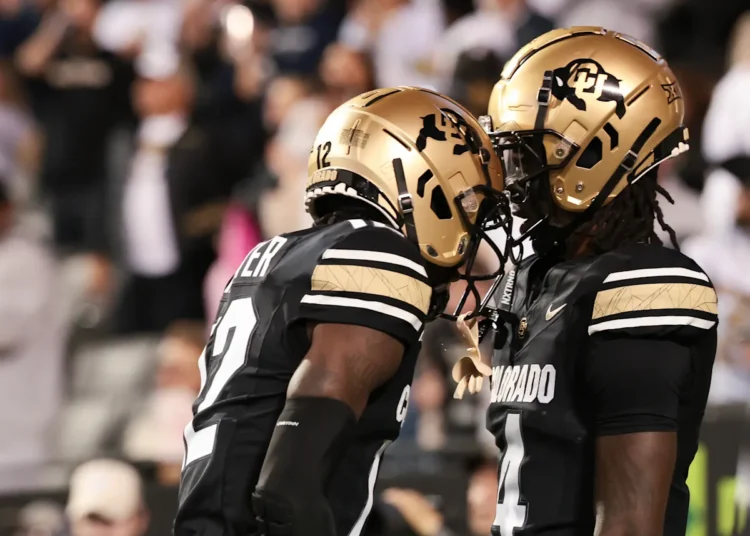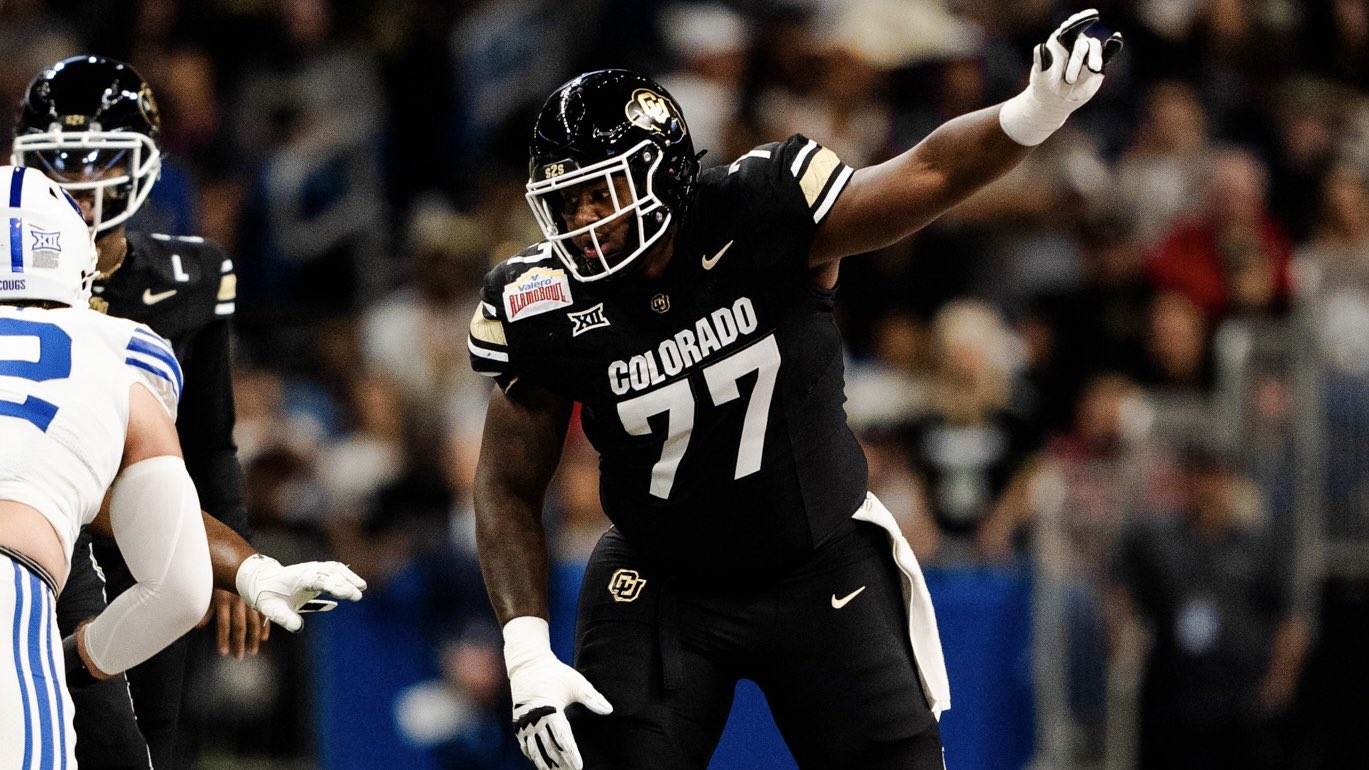Following a devastating loss in the 2024 Bowl Game to BYU, the Colorado Buffaloes found themselves at the center of intense scrutiny, with some calling them “frauds,” including ESPN. The defeat, a resounding 38-14 loss, left many questioning the Buffaloes’ true standing in college football, as their once-promising season unraveled on the national stage. While Colorado had gained national attention earlier in the year for its dramatic turnaround under head coach Deion Sanders, their bowl game loss highlighted significant flaws that were difficult to ignore.
The Rise and Hype of the Buffaloes
Before the loss to BYU, the Colorado Buffaloes had become one of the most talked-about teams in college football. Under the guidance of head coach Deion Sanders, the program had undergone a dramatic transformation. The arrival of Coach Prime brought not only high expectations but also a wave of media attention. Colorado’s performance early in the season fueled a sense of optimism and excitement, with the Buffaloes becoming one of the surprise teams in the country. Led by dynamic quarterback Shedeur Sanders and explosive playmakers like Travis Hunter, Colorado quickly gained a reputation for their high-octane offense and resilient defense.
The Buffaloes’ rise was not just about their on-field success; it was about the cultural shift that Coach Prime instilled in the program. Sanders, who had built a reputation as a charismatic and confident leader, created a buzz around the team that transcended football. His brash, no-nonsense approach to coaching resonated with many, drawing in fans and analysts who believed Colorado was on the cusp of something special.
But as the season progressed, it became clear that the Buffaloes, despite their early promise, were not quite the juggernaut that many had hoped for. Their high-powered offense was often inconsistent, and their defense struggled against more physically imposing teams. Colorado’s wins, while impressive, often came against teams with weaker defenses or less depth. As the competition level increased, so did the criticism of the Buffaloes’ performance.
The Bowl Game Collapse
The ultimate test for Colorado came in their bowl game against BYU, a team that had shown resilience throughout the season. The Buffaloes entered the game with hopes of closing out their year on a high note, but things quickly fell apart. The offense, which had been explosive at times during the season, sputtered against a disciplined BYU defense. Shedeur Sanders, who had dazzled throughout much of the regular season, struggled under pressure, throwing two interceptions and failing to find a rhythm. Colorado’s running game, which had been inconsistent all year, was ineffective, and the offensive line had no answer for BYU’s front seven.
Defensively, Colorado was equally ineffective. Despite entering the game with a solid defensive unit, the Buffaloes were overwhelmed by BYU’s balanced offensive attack. The Cougars controlled the clock, executed methodical drives, and exploited the weaknesses in Colorado’s defense, particularly in the secondary. BYU’s quarterback threw for over 300 yards and three touchdowns, while their running back gashed the Buffaloes for 120 yards on the ground. The defense, which had been a source of optimism earlier in the season, looked disorganized and overmatched.
ESPN’s Criticism and the “Fraud” Label
Following the loss, ESPN analysts were quick to criticize Colorado’s performance, with many questioning whether the Buffaloes had been overhyped throughout the season. The “fraud” label was used to describe a team that, according to some experts, had not lived up to the high expectations that had been set for them. The Buffaloes’ early success, which included a string of wins to start the season, had created the perception that Colorado was a top-tier team. However, the bowl game loss to BYU exposed the gaps in their roster and the limitations of their coaching staff.
ESPN pundits argued that while the Buffaloes had shown flashes of brilliance, they were ultimately a team that had benefited from a soft schedule and media hype. Their lack of depth, inconsistent play, and inability to perform in high-pressure situations were all cited as reasons why they were not truly contenders at the highest level of college football. The defeat to BYU was seen as a validation of these concerns, as Colorado was thoroughly outplayed in almost every aspect of the game.
A Learning Experience for Coach Prime and the Buffaloes
Despite the harsh criticism, the loss to BYU can serve as an important learning experience for Deion Sanders and the Colorado program. The Buffaloes were a team in transition, and while their early success was remarkable, they still had a long way to go in terms of building a championship-caliber team. The loss exposed areas where the team needs to improve, particularly in terms of depth, consistency, and game management.
Coach Prime, known for his ability to motivate and lead, will likely use this setback as fuel for the next phase of his program’s growth. It’s clear that Colorado needs to recruit better talent, especially in the trenches, and develop more consistency on both sides of the ball. While the “fraud” label stung, it could ultimately serve as a wake-up call for the Buffaloes to reassess their goals and focus on improving.
Conclusion
The Colorado Buffaloes’ bowl game loss to BYU and the subsequent “fraud” label from ESPN highlight the volatility of college football. While Colorado’s season was still a success in many respects, their inability to finish strong in the bowl game left a bad taste in the mouths of many fans and analysts. The harsh critique from ESPN is a reminder that in college football, hype can quickly turn to scrutiny, especially when a team fails to meet expectations in critical moments. Moving forward, the Buffaloes will need to regroup, learn from this defeat, and continue building under Coach Prime’s leadership if they hope to silence their critics and live up to the promise they showed earlier in the season.














